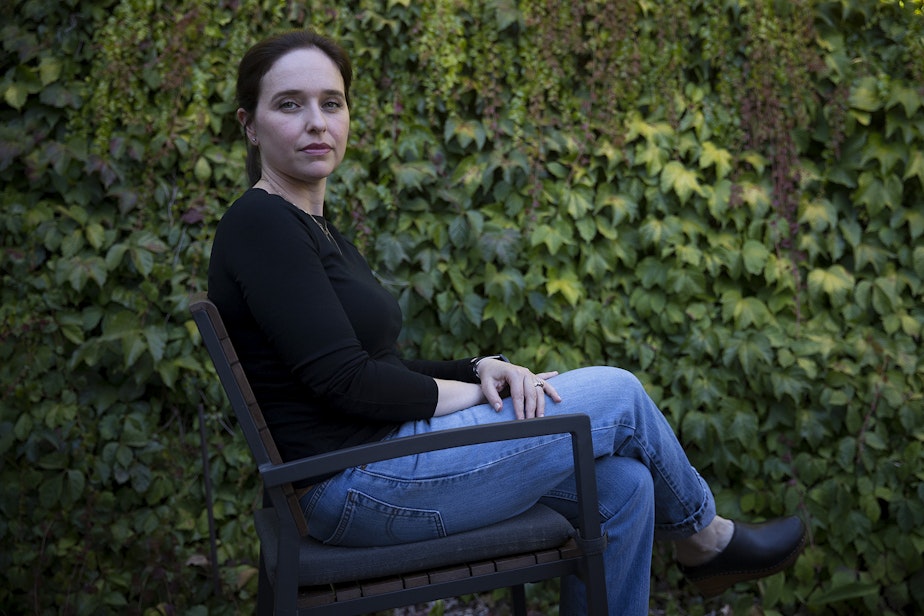Listening to Kavanaugh hearings like 'ripping off a Band-Aid over and over'

People across the country were riveted by the testimonies of Dr. Christine Blasey Ford, who accused Supreme Court Justice nominee Brett Kavanaugh of sexually assault, and Kavanaugh himself.
For many listening in the Seattle area, Ford’s story evoked suppressed memories of their own experiences with sexual assault.
Many women responded anonymously to KUOW’s request for interviews; some felt so emotionally battered they had to turn away from the media coverage.
“Cue the migraine,” wrote one.
“This is killing me,” wrote another on Facebook.
A third said, “I could barely keep my car on the road because I was shaking and crying.”
For dancer and massage therapist Jenny May Peterson, the hearings were a painful reminder of her own high-school era assault. Peterson said her response mirrored Ford’s.
“I didn’t tell my parents, I didn’t report it,” Peterson said.
Listening to Ford’s testimony was like “ripping a Band-Aid off again and again," she said.
Sarah Salcedo, a local director, tweeted that she was "sick with guilt" after her assault.
"Watching the hearing—its outbursts, stonewalling, gaslighting—has wrecked me and so many people," she said. "I’ve got someone with me as I process this. Words don’t change much, but comfort is comfort. It helps."
Rebecca Jacobs, one of the women who accused Seattle nightlife entrepreneur David Meinert of sexual misconduct, said she thought the questions being asked of Ford were "revolting." Still, she said, she thought Ford's testimony was a historic moment that lent credibility to stories of sexual assault that weren't just rape.
"It's really important that there's weight being given to someone whose experience may not have been at the extreme end of physical trauma, but still had this lifelong emotional impact," Jacobs said.
Jacobs said that she didn't suffer lifelong impacts from her alleged encounter with Meinert. But she said she understood Ford’s state of mind.
“Certainly she’s more traumatized than I was,” Jacobs told KUOW. “But this still matters. And to the people who do it: This should follow you for the rest of your life because it follows victims.”





